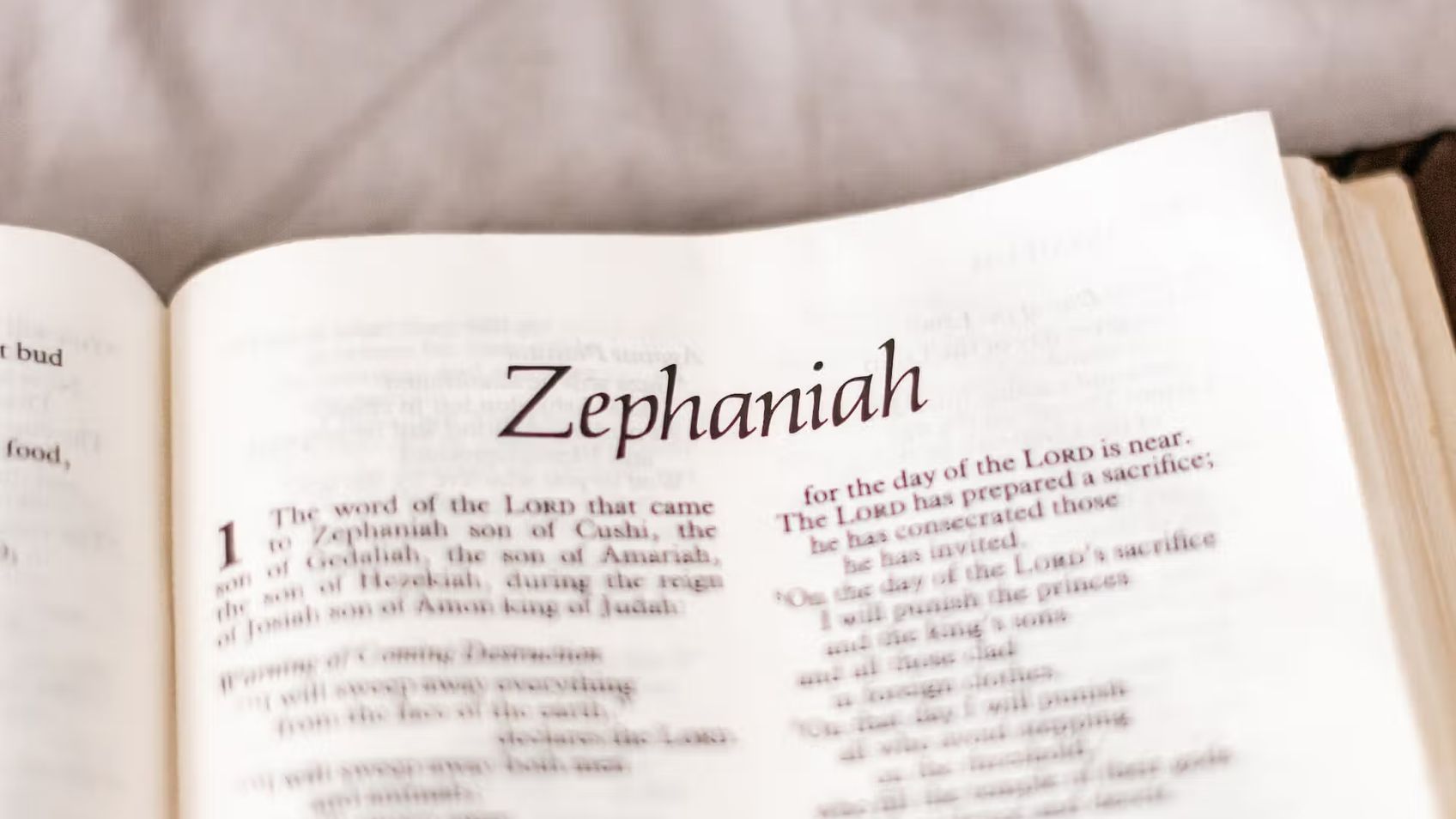Zephaniah (Full Book)

ZephaniahSteve Gregg
The book of Zephaniah, written in 612 B.C., provides a prophetic glimpse into the future. The author addresses the rampant idolatry and the worship of pagan gods among the people of Jerusalem. The text speaks of impending judgement and destruction, yet offers hope for a remnant who seek righteousness and humility. Through vivid imagery, Zephaniah depicts a time when lions will become shepherds, and justice and peace will prevail.
Series by Steve Gregg

Nehemiah
A comprehensive analysis by Steve Gregg on the book of Nehemiah, exploring the story of an ordinary man's determination and resilience in rebuilding t

Song of Songs
Delve into the allegorical meanings of the biblical Song of Songs and discover the symbolism, themes, and deeper significance with Steve Gregg's insig

Amos
In this two-part series, Steve Gregg provides verse-by-verse teachings on the book of Amos, discussing themes such as impending punishment for Israel'

Jeremiah
Steve Gregg teaches verse by verse through a 16-part analysis of the book of Jeremiah, discussing its themes of repentance, faithfulness, and the cons

Ruth
Steve Gregg provides insightful analysis on the biblical book of Ruth, exploring its historical context, themes of loyalty and redemption, and the cul

What You Absolutely Need To Know Before You Get Married
Steve Gregg's lecture series on marriage emphasizes the gravity of the covenant between two individuals and the importance of understanding God's defi

Spiritual Warfare
In "Spiritual Warfare," Steve Gregg explores the tactics of the devil, the methods to resist Satan's devices, the concept of demonic possession, and t

Titus
In this four-part series from Steve Gregg, listeners are taken on an insightful journey through the book of Titus, exploring issues such as good works

Church History
Steve Gregg gives a comprehensive overview of church history from the time of the Apostles to the modern day, covering important figures, events, move

Biblical Counsel for a Change
"Biblical Counsel for a Change" is an 8-part series that explores the integration of psychology and Christianity, challenging popular notions of self-
More on OpenTheo

Protestants and Catholics: What’s the Difference? With Chad Van Dixhoorn, Blair Smith, and Mark McDowell
Life and Books and Everything
November 26, 2025
How should Protestants think about the Catholic Mass? About the Eucharist? About the history and development of the papacy? In this panel discussion,

Can You Recommend Good Books with More In-Depth Information and Ideas?
#STRask
January 22, 2026
Questions about good books on Christian apologetics, philosophy, and theology with more in-depth information and ideas, and resources to help an intel

Does God Hear the Prayers of Non-Believers?
#STRask
February 26, 2026
Questions about whether or not God hears and answers the prayers of non-believers, and thoughts about a church sign that reads (as if from God), “Just

Are You Accursed If You Tithe?
#STRask
December 15, 2025
Questions about whether anyone who tithes is not a Christian and is accursed since Paul says that if you obey one part of the Mosaic Law you’re obliga

The Resurrection Standoff: Licona vs. Ehrman on the Unbelievable Podcast
Risen Jesus
October 22, 2025
This episode is taken from the Unbelievable podcast with Justin Brierly in 2011 when Dr. Bart Ehrman and Dr. Michael Licona address the question: Is t

What Are Some Good Ways to Start a Conversation About God with Family Members?
#STRask
October 30, 2025
Questions about how to start a conversation about God with non-Christian family members, how to keep from becoming emotional when discussing faith iss

How Do We Advocate for Christian Policy Without Making the Government Interfere in Every Area of Life?
#STRask
November 20, 2025
Questions about how to advocate for Christian policy without making the government interfere in every area of life, and the differences between the mo

Christmas Cranks and Christmas Blessings with Justin Taylor and Collin Hansen
Life and Books and Everything
December 17, 2025
If you are looking for a podcast where three friends talk about whatever they want to talk about and ramble on about sports, books, and grievances, th

Why Is It Necessary to Believe Jesus Is God?
#STRask
February 19, 2026
Questions about why it’s necessary to believe Jesus is God, whether belief in the Trinity is required for salvation, and why one has to believe in the

Why Does the Bible Teach You How to Be a Proper Slave Owner?
#STRask
November 13, 2025
Question about why it seems like the Bible teaches you how to be a proper slave owner rather than than saying, “Stop it. Give them freedom.”
* It s

Is It Possible There’s a Being That’s Greater Than God?
#STRask
February 5, 2026
Questions about whether it’s possible there’s a being that’s greater than God and that’s outside of God’s comprehension and omniscience, and how to ex

Does God Really Need a “Pound of Flesh” to Forgive Sins?
#STRask
January 12, 2026
Questions about how to answer the challenge that God doesn’t need a “pound of flesh” to forgive sins but can simply forgive, and whether the claim in

An Invitation to the 2026 Coram Deo Pastors Conference
Life and Books and Everything
February 18, 2026
"I love being a pastor, and I love pastors, which is why I hope you will consider joining us at the Coram Deo Pastors Conference in 2026." —Kevin DeYo

How Can We Know Who Is Teaching the Same Gospel Paul Taught?
#STRask
February 16, 2026
Questions about how we can know who is teaching the same gospel Paul taught, and whether or not Jeremiah 1:5 supports the idea that we pre-existed in

The Heidelberg Catechism with R. Scott Clark
Life and Books and Everything
November 3, 2025
You may not think you need 1,000 pages on the Heidelberg Catechism, but you do! R. Scott Clark, professor at Westminster Seminary California, has writ
